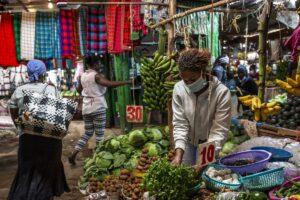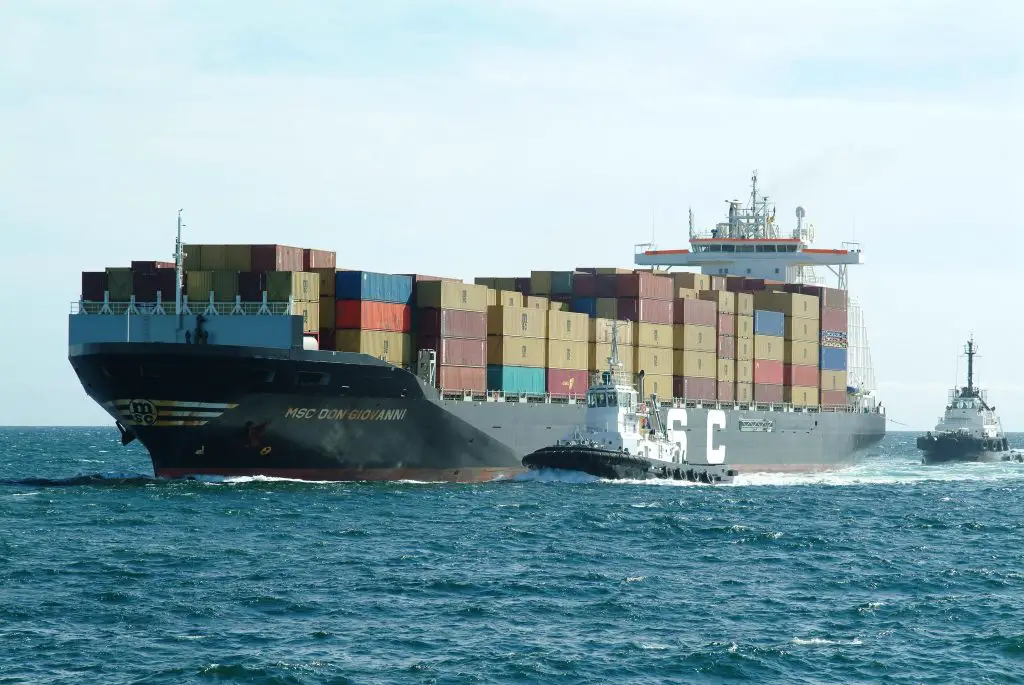- Kenya, Tanzania braces for torrential floods as Cyclone Hidaya approaches
- EAC monetary affairs committee to discuss single currency progress in Juba talks
- Transport and food prices drive down Kenya’s inflation to 5% in April
- Payment for ransomware attacks increase by 500 per cent in one year
- History beckons as push for Kenya’s President Ruto to address US Congress gathers pace
- IMF’s Sub-Saharan Africa economic forecast shows 1.2 percent GDP growth
- The US Congress proposes extending Agoa to 2041, covering all African countries
- Millions at risk of famine as fuel tax row halts UN aid operations in South Sudan
Browsing: Kenya National Bureau of Statistics (KNBS)
The 2019 FinAccess Household Survey noted that mobile money has been instrumental in deepening financial inclusion…
Most entrepreneurs have not prepared a business succession plan for their businesses in case of their departure, industry players have noted, which has led to the collapse of many Small and Medium Enterprises (SME) in the demise or the absence of the business owner.
In most cases, it is the owner who carries the vision of the business and ensures that the business remains afloat.
Additionally, most SME’s do not have comprehensive risk and asset management solutions, which leaves them greatly exposed to manageable risks and therefore stand a very slim chance of recovering their business in case of an event.
This was reported during an Invest In Africa-Kenya and Liberty Life Insurance forum in Nairobi this week, attended by over 60 SMEs.
The forum was convened to discuss business sustainability beyond the owner under the theme: “Beyond the Business: Is there tomorrow for your company?”
Speaking at the event, …
Over 50 per cent of Kenyan manufacturers feel the sector is struggling to compete with developed countries with equal pressure coming from regional states, a study has revealed.
This is in the wake of continued high costs of doing business in the country with the local market further being infiltrated by cheap imports mainly from China.
READ:What is hurting manufacturing in Kenya
The study has been unveiled by SYSPRO, a global provider of industry-built Enterprise Resource Planning (ERP) software for manufacturers and distributors, together with Strathmore University.
External factors
In the findings, energy leads as the top factor affecting businesses with a 54 per cent prevalence followed solely by the country’s political climate which accounts for 50 per cent of effect to investments.
The third most toxic factor affecting businesses is taxes with 43 per cent prevalence. Others are cheap imports (40%), exchange rates and raw materials each at …
The Kenya Bureau of Standards (KEBS) has initiated Kenya Quality Award (KQA), a scheme aimed at promoting and entrenching a quality culture amongst Micro, Small and Medium Enterprises (MSMEs) in Kenya.
This comes in the wake of increased efforts to improve the quality of local products to meet international standards, which will help Kenyans manufacturers and producers increase Kenyan exports to foreign markets.
The move is also as a strategy to prepare local businesses to tap into the Africa Continental Free Trade Area which is slowly taking shape.
READ:What Africa stand to gain from ACFTA
Designed to recognize MSMEs striving to produce quality product and which already have a valid Standardization Mark of Quality (SMark), the KQA programme will additionally assist MSMEs to initiate, develop and implement quality management systems to a status of certification.
Speaking during the KQA launch ceremony, Kebs acting managing director Lt. Col. (Rtd). Bernard …
Nine out of ten (87 per cent) of Kenyans are dissatisfied with the country’s direction on economic management, a survey has revealed, casting doubt on governments’ commitment to deliver on its promises.
The proportion of citizens who express dissatisfaction, according to a report released in Nairobi this week, has been increasing since 2016 when five out of ten citizens (53%) were unhappy.
Citizens are equally dissatisfied with the country’s direction on job creation (82 per cent) which again is higher compared to the past years, since 2016, when half of citizens (51%) were unhappy.
This is despite the Economic Survey 2019 by the Kenya National Bureau of Statistics (KNBS)-released in April-indicating the economy grew by 6.3 per cent in 2018 compared to 4.9 per cent in 2017, creating 840,600 new jobs.
READ:How Kenya managed to grow its economy by 6.3%
Corruption is one of the major concerns by majority …
33% of manufacturers in the country plan to reduce the number of full time employees
Only 48 per cent of manufacturers in Kenya have expressed optimism that the sector would grow this year, a latest survey has revealed, as investments in the country continue to face headwinds.
According to the Q1 ‘Manufacturing Barometer’ by the Kenya Association of Manufacturers (KAM), the biggest worry by industry players over the next six months (61 per cent) is the high cost of raw materials, which is making their products uncompetitive both locally, regional and in the international markets.
About 57 per cent are worried about pressure from increased wages, 54 per cent are concerned over decreasing profitability while 48 per cent fear that taxation policies in the country will affect their businesses.
Oil and energy prices which have remained high worries 43 per cent of the surveyed manufacturers in the country, the study …
China dominates as Kenya’s top import source globally
Uganda is Kenya’s biggest trading partner within the East Africa Community (EAC), latest data show, with China dominating the global scene.
The Economic survey (2019) shows total trade volumes (import and exports) between Kenya and Uganda in the year 2018, were valued at Ksh111.3 billion (USD1.09 billion).
Tanzania comes in a distant second with a total trade value of Ksh47.6 billion (USD468.9 million) while Rwanda is third with Ksh19 billion (USD187.2 million).
Trade with DR Congo, South Sudan and Burundi, mainly export markets for Kenya, were valued at Ksh15.2 billion (USD149.6 million), Ksh12.9 billion (USD127.1 million) and Ksh6.6 billion (USD65.02 million) respectively.
Uganda
During the year under review, Uganda increased the value of its exports to Kenya by 17.6 per cent to close at Ksh49.4 billion (USD486.7 million), from Ksh42 billion (USD413.8 million) in 2017.
READ:Uganda keen on enhancing exports to
…The economy generated 840,600 new jobs compared to 787,800 in 2017
Kenya’s economy expanded by 6.3 per cent in 2018, the economic survey released on Thursday indicates, a notable comeback from a 4.6 per cent growth recorded the previous year.
This came as the country recovered from the effects of the persistent drought experienced in 2017, coupled with uncertainties associated with general elections held in the same year.
READ:Kenya’s economy falls below Tanzania and Rwanda, records 4.9% growth
The growth has principally been attributed to increased agricultural production, accelerated manufacturing activities, sustained growth in transportation and vibrant service sector activities.
“Agricultural activities benefited from sufficient rains that were well spread throughout the country,” Kenya National Bureau of Statistics (KNBS) Director General Zachary Mwangi said during the launch of the Economic Survey (2019) in Nairobi.
Similarly, the increased precipitation was a significant boost to electricity generation and consequently favourable …










